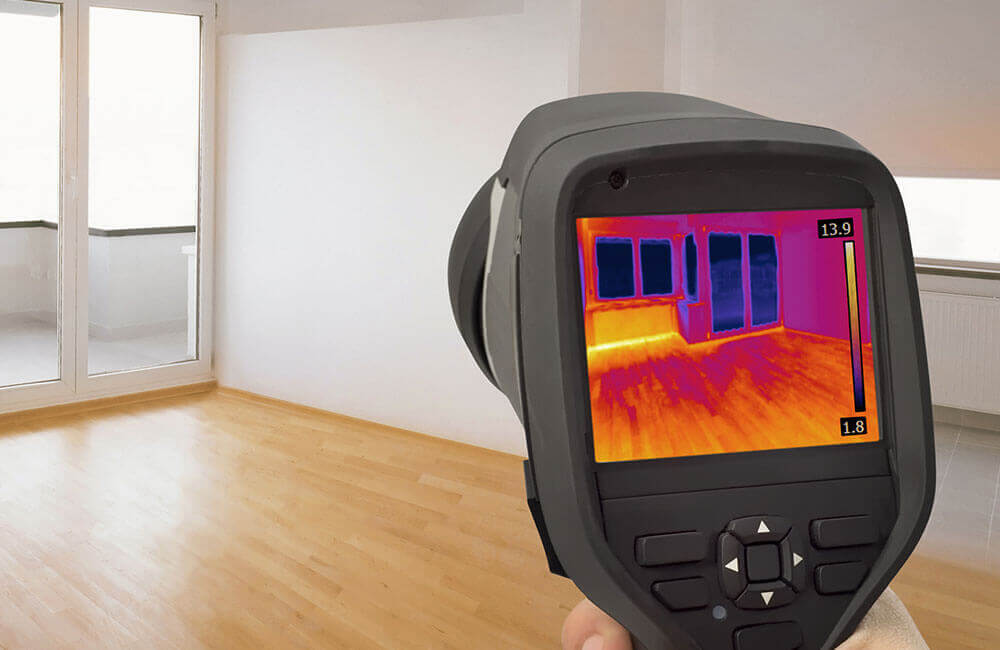If you have placed an offer on a new home, one of the first things you should do is schedule a professional home inspection. When researching home inspectors in your area, you may have seen that some use thermal imaging in home inspections and not known what that means. This article will explain thermal imaging and how it can provide a more detailed home inspection report.
What Thermal Imaging In Home Inspections Can Find
When a home inspector scans a house with an infrared thermal camera, components give off a heat signature that is displayed as a color spectrum. Unusual hot or cool areas often signify a problem that the home inspector will interpret or investigate further. Here are some examples of issues that might not be visible through the human eye, but that thermal imaging can catch:
Moisture Intrusion
When there is a hidden water leak with no signs of moisture damage, it can easily go unnoticed until costly repairs are necessary. With thermal imaging in home inspections, a darker color will appear where the moisture is since it has a cooler heat signature. This can also lead to the discovery of hidden mold growth.
Air Drafts Affecting Energy Efficiency
When the seals on doors and windows aren’t airtight, it’s more difficult to maintain a comfortable temperature in your home. Your heating or air conditioning system works harder which increases your power bill. Sometimes the gaps in doors and windows are so small that they can’t be seen.
Thermal imaging in home inspections shows areas around the doors and windows that are letting outside air in by displaying a different color around the openings. When you have this information, you can effectively seal these gaps and make your home more energy efficient.
Ineffective Insulation
Another important aspect of energy efficiency is insulation. Because insulation within the drywall is impossible to see without cutting it open, most people just assume that their insulation is effective.
However, it is common for insulation to slouch down in the walls over time or disintegrate because of moisture or pest damage. Maybe the builder didn’t use insulation with a high enough R-value when the home was constructed. By looking at thermal images of the walls and other areas, a home inspector can evaluate the condition of the insulation.
Electrical Hazards
Hidden electrical fire hazards are dangerous. Electrical hotspots and overheating electrical panels will show up as a brighter than usual area on an infrared image, signifying an electrical danger. Learning about electrical hazards is an important benefit of thermal imaging in home inspections.
Monadnock Home Inspections provides thermal imaging in home inspections at no extra charge or thermal imaging scans as a standalone service. Contact us to schedule your appointment in Southwest New Hampshire.

